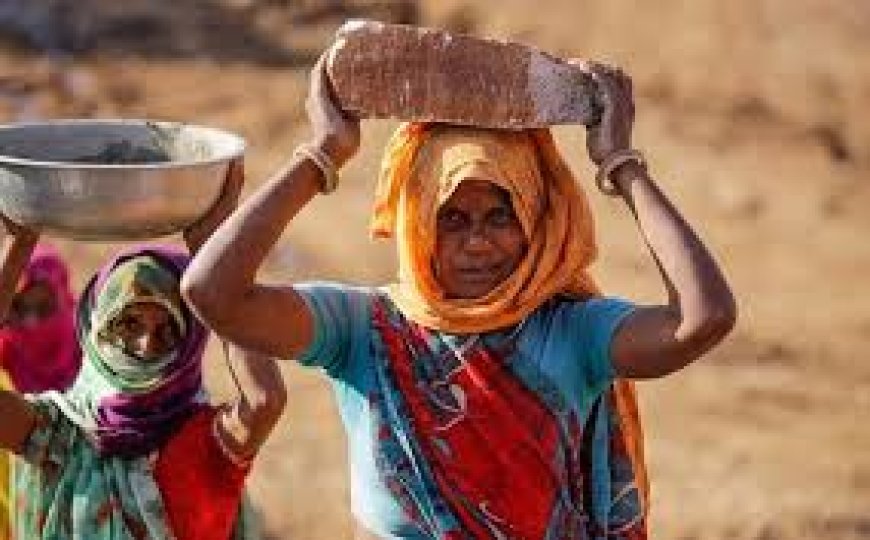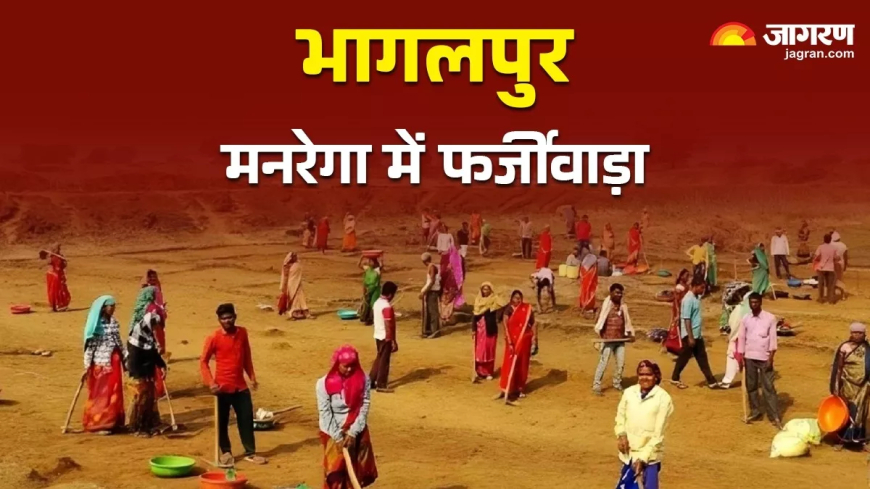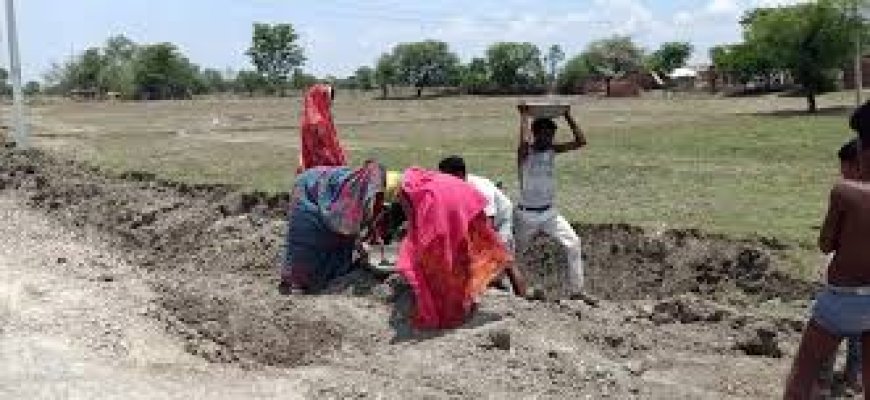The NREGA Illusion: Does India’s Rural Employment Scheme Really Help the Poor?
The National Rural Employment Guarantee Act (NREGA) claims to provide jobs to millions, but is it actually helping the poor? This article explores its failures, corruption, and whether direct cash transfers could be a better alternative.

Introduction: The Promise vs. The Reality of NREGA

When the Mahatma Gandhi National Rural Employment Guarantee Act (MGNREGA) was introduced in 2005, it was hailed as a game-changer for rural India. The idea was simple: guarantee 100 days of work per year to rural households, reduce poverty, and boost rural development.
Fast forward to 2024, and the results are disappointing.
- NREGA has cost the Indian government ₹12.2 lakh crore over the past 18 years.
- The scheme is riddled with corruption, fake job entries, and bureaucratic inefficiency.
- Instead of empowering rural workers, it has become a tool for political handouts and vote-bank politics.
So, is NREGA actually helping the poor, or is it just a costly illusion?
The Ground Reality: NREGA’s Biggest Failures

While NREGA sounds good in theory, in practice, it has created more problems than solutions.
1. Fake Jobs, Ghost Workers, and Corruption
One of the biggest issues with NREGA is fake job entries and ghost workers.
- A 2023 audit found thousands of "workers" receiving wages without ever doing any work.
- In Bihar, an investigation revealed that many NREGA wages were being credited to government officials and their relatives.
- In Rajasthan, workers who had migrated to cities were still marked as "working" under NREGA in their villages.
This corruption means that money meant for the poor is being stolen by middlemen, local politicians, and bureaucrats.
2. Wages That Arrive Late—Or Not at All
Even when people do real work, payments are delayed for months.
- In Jharkhand, reports found that 70% of workers had not received wages on time.
- Some states take up to 6 months to pay wages, leaving rural families struggling.
- Many workers are forced to bribe officials just to get their own payments.
Wouldn’t it be better to give people direct cash transfers instead of making them wait endlessly for money they have already earned?
3. Useless Infrastructure Projects That Help No One
NREGA was supposed to create productive rural assets like roads, ponds, and irrigation systems. Instead, we got:
- Roads that wash away after the first monsoon because of poor construction.
- Ponds that are dug and refilled every year—a cycle of meaningless work.
- Workers being paid to dig and refill the same holes just to meet job quotas.
Instead of creating lasting development, NREGA has turned into a welfare trap that forces people into unproductive labor.
4. A Trap That Keeps People Poor
One of the worst effects of NREGA is that it traps rural workers in low-paying jobs.
- Many workers prefer doing NREGA work over migrating to cities for higher-paying jobs because it's an easy, guaranteed paycheck.
- Instead of learning new skills or finding better work, millions are stuck doing manual labor with no future growth.
- NREGA is not reducing poverty—it’s just keeping people dependent on government handouts.
Wouldn’t it be better to give them the money directly and let them choose how to improve their lives?
What’s the Alternative? Direct Cash Transfers (DCTs)
Countries like Brazil and Kenya have successfully implemented Direct Cash Transfers (DCTs) instead of inefficient government job schemes.
How Would Direct Cash Transfers Work in India?
- Instead of forcing people to do unproductive work, the government directly transfers the money into their bank accounts.
- Beneficiaries can use the money for education, starting a small business, or migrating to better jobs.
- It removes middlemen and corruption because payments go directly to the people instead of through a bureaucratic system.
Studies show that giving people money directly is more effective at reducing poverty than job schemes like NREGA.
- A 2021 study found that unconditional cash transfers led to better health, higher education rates, and more savings compared to government job programs.
- In Kenya, direct cash transfers helped 85% of beneficiaries move out of poverty within five years.
Wouldn’t it be better to trust people to decide how to use their own money instead of forcing them into fake, low-paying government jobs?
Conclusion: Time to Move Beyond NREGA
NREGA has failed to eliminate poverty or create real development. Instead, it has:
Encouraged corruption and fake job entries.
Wasted taxpayer money on useless infrastructure projects.
Delayed payments, keeping workers in financial stress.
Created a cycle of dependency instead of empowering rural workers.
It’s time for India to move beyond NREGA and adopt a smarter solution: Direct Cash Transfers.
By giving people money directly, we can:
Eliminate corruption and middlemen.
Give people freedom to invest in education, business, or migration.
Reduce administrative costs and save taxpayer money.
Do we want to keep wasting money on a failed system, or do we want to empower rural India with real financial freedom?
What's Your Reaction?



















































